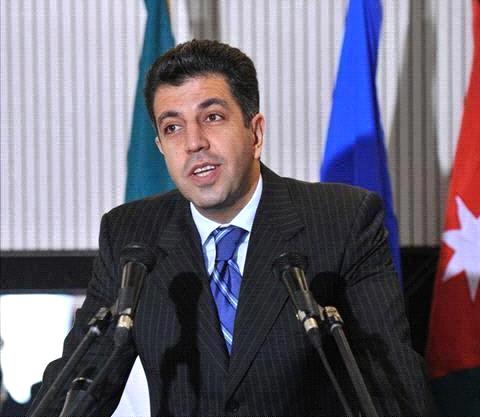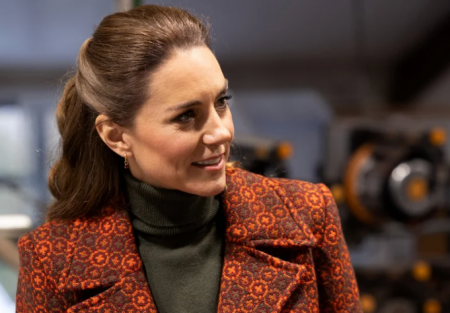Ammon News - BRUSSELS - Ahmad Masa’deh was selected today as the Secretary General of the Union for the Mediterranean by a unanimous decision passed by the permanent representatives of the member states of the Union for the Mediterranean in their meeting held in Brussels. This decision was referred to the foreign ministers of the Union for a final endorsement within a period of two weeks in order to enable the new Secretary General to assume office at the Union’s Secretariat Headquarters in Barcelona, Spain no later than mid of next month.
The nascent Union for the Mediterranean aims to establish a regional cooperation structure that would contribute to achieving peace, stability and growth in the Mediterranean basin. Moreover, forming comprehensive economic, social and cultural partnerships between European and Mediterranean countries via a series of pilot developmental projects will be among the Union’s main objectives.
Today’s decision of the permanent representatives of the Union came in line with the outcomes of the meeting held by the foreign ministers of Egypt, France, Spain, Tunisia and Jordan in Cairo on the 5th of this month during which the ministers welcomed the nomination of Masa’deh for this position and requested the permanent representatives to approve this nomination in their meeting scheduled for today and recommend it for final endorsement by the foreign ministers thereby enabling Masa’deh to take office as soon as possible.
The selection of Dr. Masa’deh as the first Secretary General of the Union for the Mediterranean is a translation of the vision of His Majesty King Abdullah II on enhancing Euro-Med relations as a matter of necessity. It is another Jordanian diplomatic achievement that underscores the Kingdom’s vital role in the region’s Euro-Med transformations that are taking place at all levels.
In a speech following his selection at today’s meeting, Masa’deh thanked all the member states of the Union for his selection to this prestigious international post. He stressed that establishing the Secretariat opens a new page for Euro-Med cooperation and cements the principles and values that are at the core of the Union for the Mediterranean.
Moreover, he added, it is a manifestation of the seriousness of all parties to this project and their belief in its objectives. Masa’deh said “We will build on the various achievements we accomplished thus far in a manner that promises to realize more closeness between the North and South of the Mediterranean.”
Masa’deh reiterated Jordan’s founding values and policies, as constantly voiced by His Majesty the King, which are based on attaining security, stability in addition to prosperity for the peoples of the Mediterranean. He underscored that such values and policies turned the Kingdom into a microcosm of modernity, cultural and historical heritage as well as political and economic openness with all countries of the world. Jordan has also become an exporter of human capital and excellence.
Masa’deh added: “Your decision today is but an attestation to Jordan’s vital regional role which is based on values of moderation, openness, reconciliation and integrity.” He vowed to maintain these values while performing his new duties.
The Union for the Mediterranean was officially launched at the Paris summit (July 2008) upon the invitation of French President Nicolas Sarkozy and the participation of the heads of state and government of 43 countries being members in the Union for the Mediterranean. The latter is an extension of the Euro-Med partnership known also as the Barcelona Process, which was launched back in 1995.
Jordan has always played an active role in the Euro-Med partnership and works of the Union for the Mediterranean, enabling the Jordanian candidature for the position of Secretary General to garner the support of all Arab states. This support was expressed in the Doha Arab Summit resolution last March and reaffirmed thereafter by the Arab League at ministers of foreign affairs level.
As an embodiment to shared ownership and equality in obligations and responsibilities between the South and North of the Mediterranean, the Paris Summit endorsed the “Paris Declaration” which laid the foundations for the Union’s institutional structure. It established a rotating, joint, two years presidency.
In its first term, the joint presidency was entrusted to French President Nicolas Sarkozy from the Northern rim of the Mediterranean and his counterpart the Egyptian President Mohamad Husni Mubarak from the Southern rim. It was agreed to hold a biennial summit for the Union through which the strategic vision of the Union’s leaders will be embodied.
The Paris declaration also established a Secretariat that is directly linked to the Union’s presidency. This Secretariat plays a vital role in the work of the Union and is considered its executive arm. The political authority to revise and supervise the Union’s work remained within the competency of the ministers of foreign affairs of the Union’s member states during their annual meeting in addition to the regular meetings of the permanent representatives and senior officials.
The importance of the Secretariat of the Union for the Mediterranean stems from it being the driving force of the Union. It has been tasked with translating the Union’s political and economic objectives through implementing a number of regional and sub regional projects that are to have a positive economic, social and developmental impact for the peoples of the Mediterranean region. The Secretariat will elicit developmental cooperation projects that are presented to it by member states of the Union. It will procure funding for these projects as well as supervise and audit their implementation.
The Paris Summit indentified six developmental sectors under which projects will be implemented: energy; transport; environment; civil protection; higher education and development of small and medium sized enterprises. The Union for the Mediterranean is to be funded by the European community budget, private sector actors, and member states contributions, in addition to what will be contributed by the European Investment Bank and Arab investment funds linked to the Arab League like the Arab Monetary Fund and the Economic and Social Development Fund.
In addition to the Arab League, the Union's membership includes Forty-three countries divided among twenty-seven European countries: France, Spain, Italy, Germany, United Kingdom, Austria, Netherlands, Belgium, Luxembourg, Bulgaria, Cyprus, Czech Republic, Denmark, Sweden, Finland, Latvia, Estonia, Greece, Hungary, Ireland, Lithuania, Malta, Romania, Portugal, Poland, Slovakia, and Slovenia. It also includes fifteen Southern and Eastern Mediterranean countries: Morocco, Algeria, Tunisia, Mauritania, Egypt, Jordan, Syria, Lebanon, Palestinian National Authority, Turkey, Israel, Albania, Croatia, Monaco and Montenegro.
In this context, the Statute of the Secretariat of the Union for the Mediterranean states that the Secretary General’s term shall be three years subject to renewal. The Secretary General will have six Deputy Secretaries General whom will be chosen, for the first term, from Italy, Greece, Malta, Turkey, the Palestinian National Authority and Israel.
Dr. Masa’deh held the position of Minister for Public Sector Reform in the Jordanian Government from 2004 to 2005. He articulated and supervised a national program for reforming public administrations and civil service.
Since 2006, Masa’deh took office as the Ambassador of the Hashemite Kingdom of Jordan to the European Union, Belgium, Norway and Luxembourg. He is also the Jordanian Coordinator to the Union for the Mediterranean and Jordan’s Representative to NATO.
During his tenure, he focused on institutionalizing Jordan’s relations with the European Parliament as well as augmenting relations between Jordan and the European Union via initiating the “advanced status” process. He also played a central role in strengthening Jordan’s Atlantic relations.
Dr. Masa’deh boasts a vast commercial legal background being an attorney and a university professor specialized in international trade, investment and projects. He is also a member of the boards of major companies like Royal Jordanian, the Jordanian national carrier, as well as international institutions like the World Trade Law Association in London and the World Bank International Center for Settlement of Disputes.
Masa’deh was born in Jordan on 1969. He graduated with an LL.B. in law from the University of Jordan. He also holds a Master of Laws LL.M. degree from the University of Virginia in Charlottesville USA, and a PhD from King’s College London. He has several publications in the legal field.
Additional Information
The Barcelona Declaration 1995
The Barcelona Declaration, which coincided with positive regional conditions following the signing of the Jordan-Israel peace treaty, aimed at achieving peace in the Middle East and creating partnerships in the following three areas:
• Political and security dialogue aimed at establishing a common area for peace and prosperity on the basis of respect for human rights and democracy.
• Economic and financial partnership and the gradual establishment of a free trade area with a view of attaining common prosperity and support the process of economic transformation in the participating countries.
• Social, cultural and human resources partnership to promote understanding between peoples and cultures and exchanges between civil societies.
The six sectors of cooperation and modalities of the planned projects within this framework
First: the environment sector:
Pollution control in the Mediterranean: the European Commission presented, in March 2008, practical projects aimed at eliminating 80% of the sources of pollution by the year 2020 at an estimated cost of up to two billion Euros at least.
Second: the transport sector:
Work will be undertaken to establish sea and land routes to improve the flow of trade between both rims of the Mediterranean Sea.
Third: Civil Protection
Work will be undertaken to establish projects aimed at strengthening civil defense in all its forms to respond to natural disasters, particularly those associated with global warming.
Fourth: the energy sector:
Work will be undertaken to establish mega projects in the field of energy and electricity connection and to develop a plan for solar energy in the Mediterranean.
Fifth: higher education and scientific research:
The development of the Mediterranean University, which was launched in June 2008 in Portoroz, Slovenia and the establishment of a network of universities and scientific research centers in order to a human, cultural and scientific Mediterranean space
Sixth: the business sector:
Initiatives will be launched to assist in the development of small and medium-sized enterprises in the Mediterranean basin which will support establishing a free trade zone on its Southern rim.
The cultural dimension of the Union
In addition to the political and developmental dimensions of the Union, the social, cultural and human dimensions are a key supporting factor to its activities. The Anna Lindh Foundation for Dialogue among Civilizations, which is the cultural arm of the Union, works to promote cultural rapprochement among different cultures of the Mediterranean, while civil society organizations engage in various cultural and humanitarian activities through projects aimed at strengthening their role in Mediterranean countries.
The peoples’ dimension of the Union
In order to embody the exercise of Euro-Med democratic norms, in which all countries share the responsibilities and duties aimed at creating an effective parliamentary space in relation to various EU policies, the Euro-Mediterranean Parliamentary Assembly (EMPA) was established. Its membership comprises representatives from the Union member states national parliaments in addition to the European Parliament. EMPA became the legislative parliamentary arm for the work of the Union for the Mediterranean. Jordan assumed the presidency of the Euro-Mediterranean Parliamentary Assembly last March.

